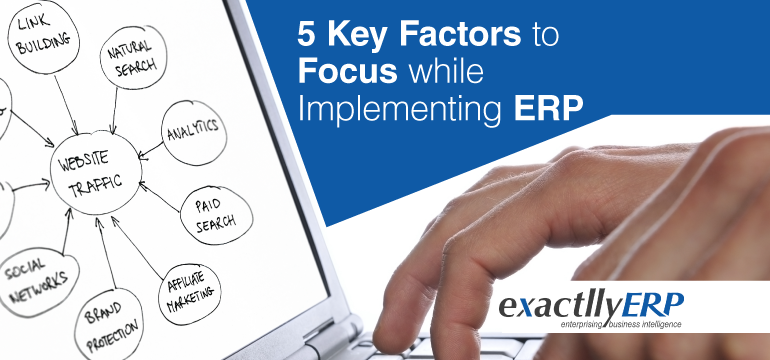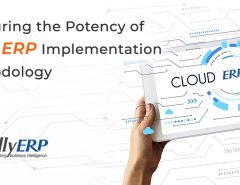Here are a few things you might want to bear in mind on ERP Implementation:
- Software Compatibility –
Software compatibility is crucial for the success of ERP implementation. Therefore, define your business needs aptly before choosing the software. Besides that, ERP software is subject to stability concerns; so it is important that the software is thoroughly tested before implementation. Moreover, ERP solutions do not give instant results. It needs perseverance and determination by the company to get positive results out of it.
-
Pre-defined scope of Work –
A precisely defined scope of work reduces implementation risk. An ERP system standardizes and integrates various stakeholders within the organization. With a more comprehensive workflow, ERP implementation becomes easier and reduces operating cost. This helps in maintaining transparency in relations between the client and the service provider.
-
Phase-wise ERP Implementation –
ERP implementation should be carried out in phases. Too much change in a short time may overwhelm employees and put them off. A step by step approach builds confidence among users and they are more receptive to the upcoming change. This approach forms the basis for change management during ERP implementation.
-
ERP Training –
Though ERP compatibility is absolutely necessary, a firm risks its business operation by choosing a complicated ERP. ERP, in the end, has to be intuitive and easy to comprehend to promote its usage among employees. Adequate training of employees should be an integral part of the ERP implementation process to encourage acceptance among employees and make sure that the system is used correctly. It is also advisable to review employee skills and train them from time to time especially when new features and modules are added to the system.
-
Return on Investment –
ERP solution should have a long shelf-life considering positive return on investment. A solution with an ability to customize to your business needs offers far more benefits than the other way round. Apart from that, ERP implementation should be carefully planned without becoming a burden on the IT department. If it has a tendency to consume too much time and energy, it might disturb the core task of the IT team.
-
Looking Forward –
ERP systems have been known to bring revolutionary changes in modern business practices. It has the ability to manage various aspects of the business. It has become easier for business owners to have a comprehensive view of their business. The scope of improvement increases because the level of uncertainty comes down. Despite multiple benefits, there are risks associated with ERP implementation especially operational, IT and financial that can bother the business if not monitored precisely.
exactllyERP is one of the top ERP providers. To know more about Exactlly, feel free to Contact Us and get a Free Demo.





Nice List Thanks for sharing, excellent list of factors to focus while implementing ERP. Keep sharing, I look forward to reading more.
Good blog. Variety of information which is helpful to improve my knowledge even more and very thoughtful blog. Thanks for the article!